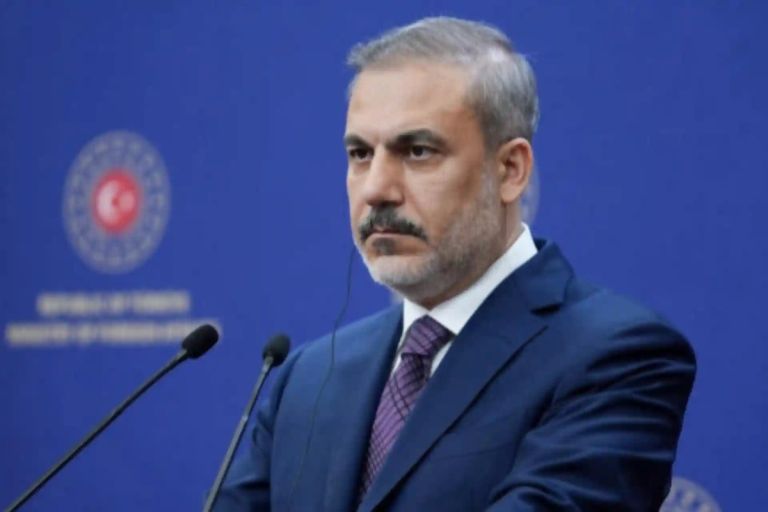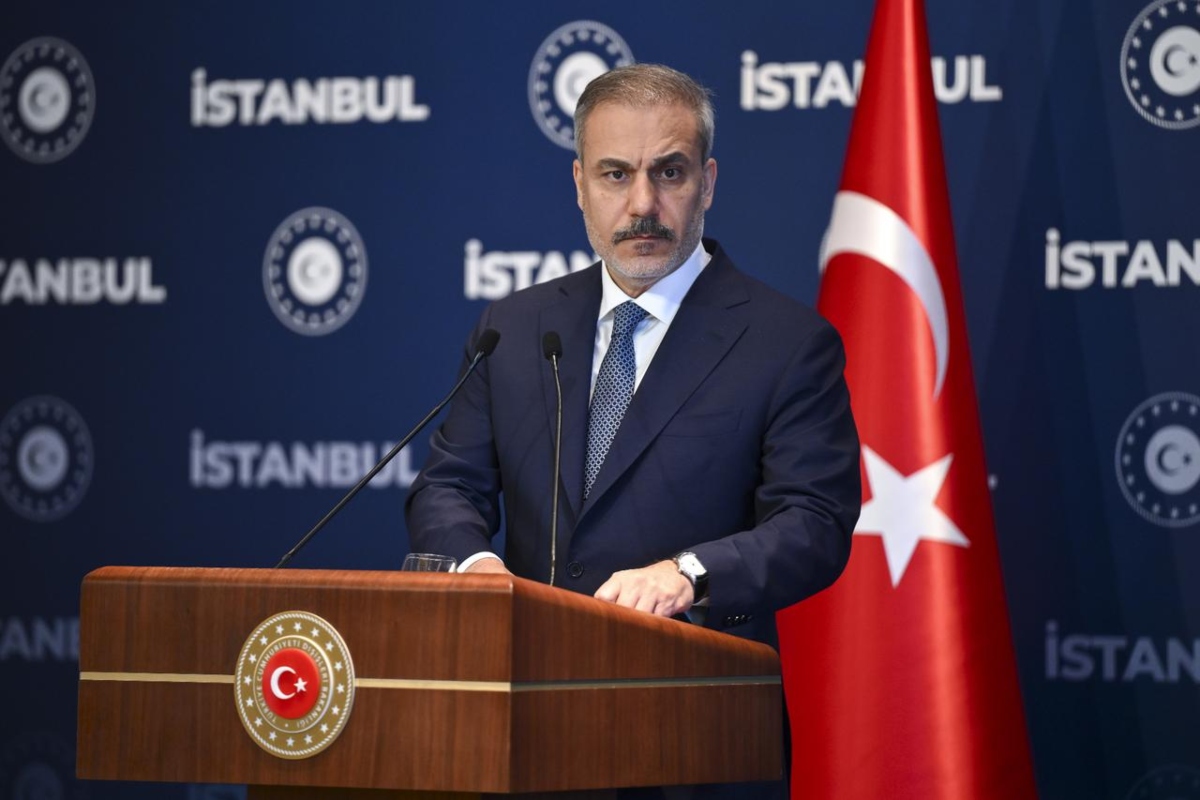Fidan’s Provocations: “Don’t Open the Door to Crises That May Come at a Cost to Greece”

Πηγή Φωτογραφίας: AP Photo//Fidan’s Provocations: “Don’t Open the Door to Crises That May Come at a Cost to Greece”
Turkish Foreign Minister Hakan Fidan launched a fresh verbal offensive against Greece, accusing Greek politicians of using Turkey as a “political aspirin” to distract from domestic challenges. In his boldest statement, he warned Athens not to “open the door to crises” that could bring strategic consequences. His remarks add tension to already complex Greek-Turkish relations, which are navigating fragile diplomacy in the Eastern Mediterranean.
Key Points from Fidan’s Remarks
- “Political Aspirin” Allegation Fidan claimed that Greek politicians consistently weaponize anti-Turkish rhetoric to deflect attention from internal political issues.
- Strategic Warning
In his most striking comment, he said:
“They must not open the door to crises that may come at a cost to them.” An apparent threat that any escalation might have severe geopolitical repercussions.
- Accusation of “Cheap Politics” He denounced what he called the “cheap politics of fear,” warning that such tactics endanger regional stability and undermine long-term diplomacy.

Greece’s Response
Greek diplomatic sources responded firmly but calmly, stating that Greece does not accept political lectures and rejects any threats against its sovereignty or that of Cyprus.
Athens emphasized its commitment to international law, peaceful dialogue, and the protection of sovereign rights. Greece also underscored its solidarity with Cyprus, particularly amid renewed Turkish assertiveness in the Eastern Mediterranean and the occupied north of the island.
Strategic Context & Geopolitical Stakes
- Turkey’s Push for a “Package Deal” Ankara continues to demand that issues like maritime boundaries, airspace, demilitarization of islands, and the Cyprus dispute be addressed as a “comprehensive package” in talks with Greece.
- Greece’s Diplomatic Approach Athens has resisted this, favoring a more structured, international-law-based dialogue focused solely on delimiting maritime zones. Greek officials argue that Turkey’s “bundling” strategy dilutes legal clarity and leads to diplomatic deadlock.
- Risk of Dialogue Breakdown Analysts warn that the aggressive tone from Ankara threatens to derail recent efforts at rapprochement between the two NATO allies — a fragile process built on limited confidence-building measures.
Wider Regional Impact
This rhetorical escalation comes at a sensitive time. Both countries play critical roles in NATO’s southeastern flank, while the Eastern Mediterranean is once again at the heart of energy exploration, naval maneuvers, and shifting alliances — including Israel, Egypt, and Gulf states.
Fidan’s remarks, therefore, are not only aimed at Athens but serve a dual purpose: reinforcing Ankara’s regional posture and signaling domestic strength in Turkish politics ahead of possible policy shifts in 2025.
Hakan Fidan’s latest statements reflect a familiar yet dangerous pattern in Greek-Turkish relations: assertive rhetoric, strategic ambiguity, and threats of escalation. While Turkey attempts to set the agenda with maximalist positions, Greece remains grounded in international legitimacy and measured diplomacy.
The challenge ahead lies in whether both countries can prevent words from turning into unintended confrontations — particularly in an era where geopolitical miscalculations carry real risks.
Source: pagenews.gr
Διαβάστε όλες τις τελευταίες Ειδήσεις από την Ελλάδα και τον Κόσμο






Το σχόλιο σας